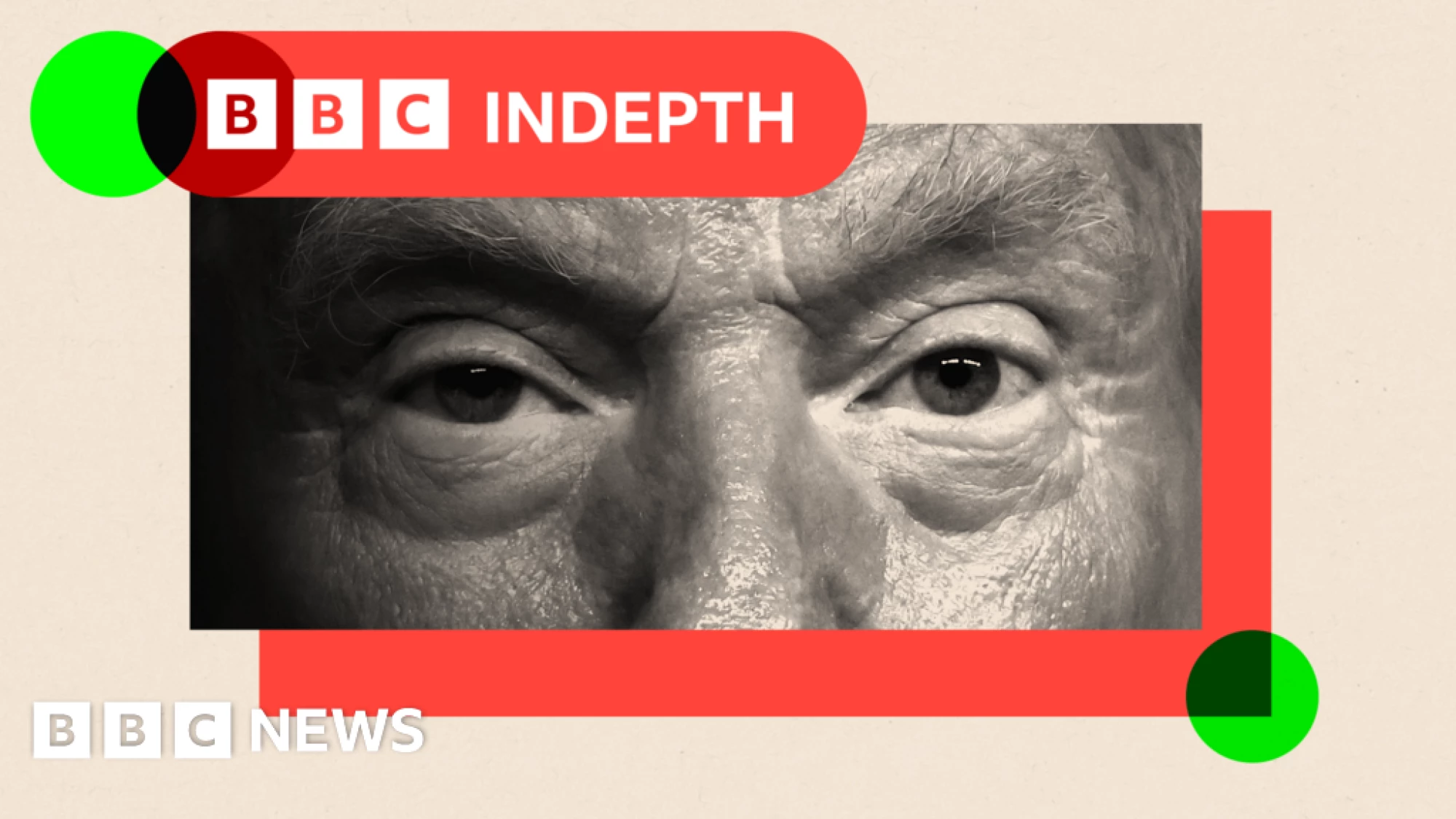How Trump is using the 'Madman Theory' to try to change the world

Political scientists have a term for the tactic, that has been used by some leaders including Nixon, to persuade adversaries that they are temperamentally capable of anything, to extract concessions. But can it work in the long term?
Watch LiveBritish Broadcasting CorporationHomeNewsSportBusinessInnovationCultureArtsTravelEarthAudioVideoLiveHomeNewsIsrael-Gaza WarWar in UkraineUS & CanadaUKUK PoliticsEnglandN. IrelandN. Ireland PoliticsScotlandScotland PoliticsWalesWales PoliticsAfricaAsiaChinaIndiaAustraliaEuropeLatin AmericaMiddle EastIn PicturesBBC InDepthBBC VerifySportBusinessExecutive LoungeTechnology of BusinessFuture of BusinessInnovationTechnologyScience & HealthArtificial IntelligenceAI v the MindCultureFilm & TVMusicArt & DesignStyleBooksEntertainment NewsArtsArts in MotionTravelDestinationsAfricaAntarcticaAsiaAustralia and PacificCaribbean & BermudaCentral AmericaEuropeMiddle EastNorth AmericaSouth AmericaWorld’s TableCulture & ExperiencesAdventuresThe SpeciaListEarthNatural WondersWeather & ScienceClimate SolutionsSustainable BusinessGreen LivingAudioPodcastsRadioAudio FAQsVideoLiveLive NewsLive SportHomeNewsSportBusinessInnovationCultureArtsTravelEarthAudioVideoLiveWeatherNewslettersWatch LiveHow Trump is using the 'Madman Theory' to try to change the world (and it's working)2 days agoShareSaveAllan LittleSenior correspondentShareSaveBBCAsked last month whether he was planning to join Israel in attacking Iran, US President Donald Trump said "I may do it. I may not do it. Nobody knows what I'm going to do".
He let the world believe he had agreed a two-week pause to allow Iran to resume negotiations. And then he bombed anyway.
A pattern is emerging: The most predictable thing about Trump is his unpredictability. He changes his mind. He contradicts himself. He is inconsistent.
"[Trump] has put together a highly centralised policy-making operation, arguably the most centralised, at least in the area of foreign policy, since Richard Nixon," says Peter Trubowitz, professor of international relations at the London School of Economics.
"And that makes policy decisions more dependent on Trump's character, his preferences, his temperament."
https://www.bbc.com/news/articles/czxww2kez0go
Rating: 5